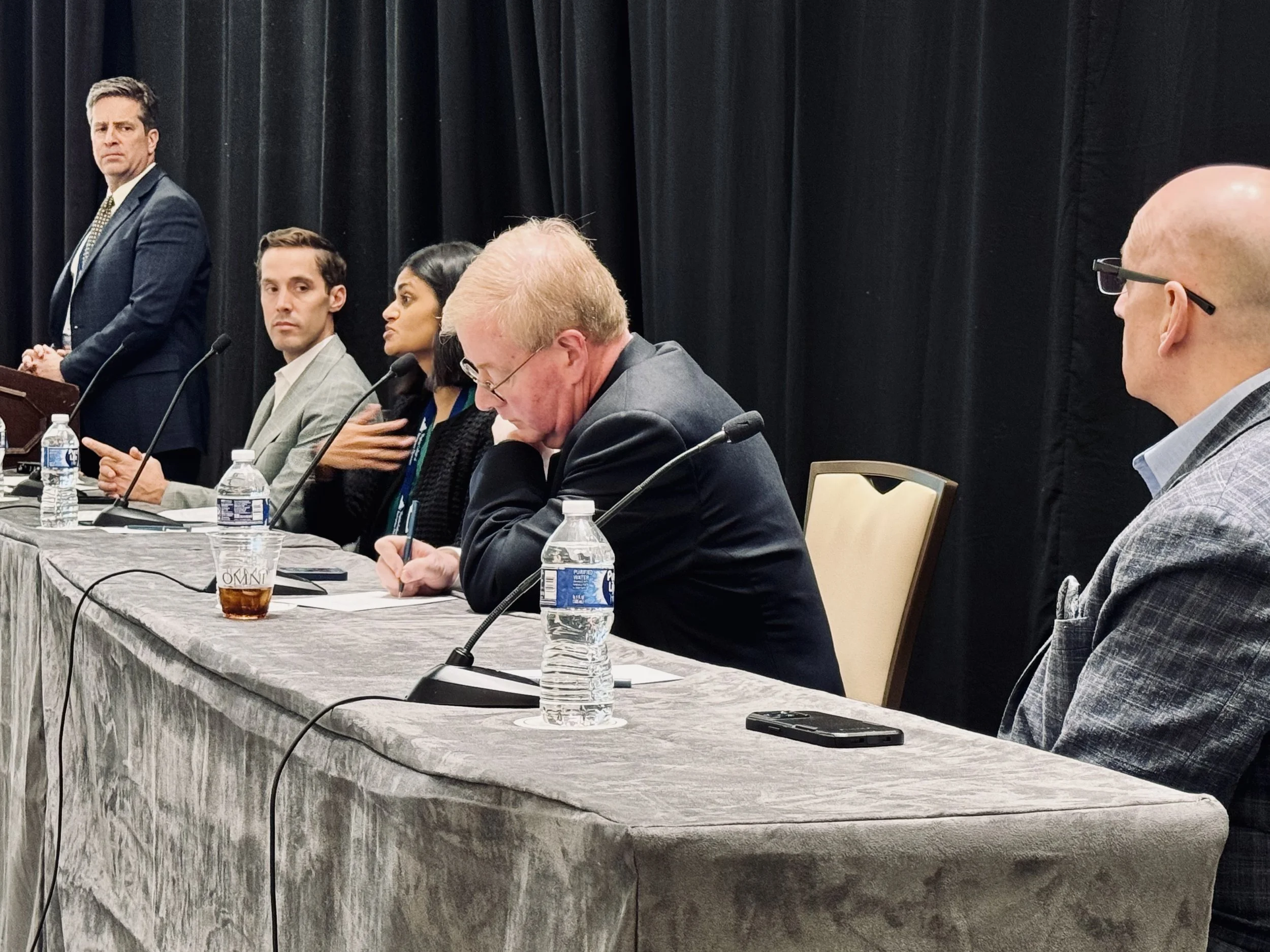VACEP EBM Series: Utilization of Extracorporeal Membrane Oxygenation (ECMO) for Management of Profound Hypothermia
VACEP’s Evidence-Based Medicine Review Series
for Emergency Physicians
Authors: Anna Cline, MD and Jesse Spangler, MD (VCU Health)
Reviewers: Timothy J. Fortuna, DO and Justin Lackey, MD (Carilion Clinic)
Article: Extracorporeal membrane oxygenation versus conventional rewarming for severe hypothermia in an urban emergency department. Link to the full study.
““Remarkably, of the 21 patients with hypothermic cardiac arrest selected for extracorporeal rewarming, 15 (71%) survived and 13 (62%) had a good neurologic outcome after receiving CPR for an average of 106 min.””
About the EBM Review Series
VACEP’s Evidence-Based Medicine Review Series is a monthly literature review started by the University of Virginia’s Josh Easter, MD, MSc, a VACEP board member working to connect the academic community in Virginia. Physicians and residents submit their review of a recent journal article, and their summary is reviewed by emergency physician peers and published here. We invite each residency in Virginia (and D.C.) to create a faculty/resident team to submit and review articles. Email Executive Director Sarah Marshall to take the next step.
Goals
Provide a brief monthly synopsis of a high yield article germane to the practice of emergency medicine for distribution to all VACEP members
Provide an opportunity for a peer reviewed publication and invited presentation for faculty and trainees
Foster an academic community focused on evidenced based medicine for emergency medicine residency programs in the region
Accidental hypothermia is estimated to account for approximately 1,500 deaths annually in the U.S.(1)
Hypothermia is defined as a core body temperature of less than 35 °C. Patients are at an increased risk of circulatory arrest with temperatures below 30 °C; patients with advanced age or other medical comorbidities are at increased risk at temperatures below 32 °C.(2)
Given the high morbidity and mortality associated with hypothermia, it is necessary to actively rewarm these patients. Generally, rewarming methods are classified into external and internal techniques.(2) Selection of treatment modality can be guided by the Swiss staging system (table 1).(1,2,3) Severe hypothermia, defined as stage III or higher, typically requires invasive measures for rewarming.(3)
Extracorporeal life support (ECLS) including Veno-Arterial (VA) ECMO is associated with improved neurologic outcomes when compared with alternative internal rewarming techniques.(3) These alternative internal rewarming methods include peritoneal lavage, bladder irrigation, and intravascular catheter rewarming.(4) Available data and literature indicate that ECMO should be considered when patients with severe hypothermia fail to respond to other rewarming measures.(1)
Table 1. Swiss system for hypothermia staging (5)
ECMO provides the benefit of added circulatory support, in addition to core rewarming.(4) However, ECMO treatment is limited by availability of resources, and may often require transfer to a capable facility.(3,4) Currently, there are not universally established guidelines to help delineate which patients may benefit from ECMO, and which can be rewarmed effectively using alternative, less resource intensive techniques.(3)
Much of the literature supporting ECMO for management of accidental hypothermia is derived from studies conducted in different countries or environments that are not generalizable to a typical U.S. emergency department setting.(4) A recent study published in April 2022 in the Journal of Academic Emergency Medicine, “Extracorporeal membrane oxygenation versus conventional rewarming for severe hypothermia in an urban emergency department,” (Prekker et al.) retrospectively evaluated outcomes of differing hypothermia management in an urban hospital in the U.S.(4)
The goal of this study was to compare relevant patient outcomes in an applicable setting to guide resource allocation and decision-making regarding treatment of severe hypothermia.(4) According to Prekker et al., this study currently represents the largest analysis of severely hypothermic patients in the U.S. urban environment.
““Our key takeaway from this paper is a data-driven optimism that despite prolonged CPR, severely hypothermic patients maintain a high probability of neurologic recovery if ECMO is initiated.””
Individual patient data was reviewed for all adult patients from a county hospital in the Minneapolis-St. Paul metropolitan area presenting with severe hypothermia between March 2007 to March 2021. Patients were included if they had hypothermia due to outdoor exposure with core temperature of less than 28 °C, and if they had received no active rewarming prior to arrival in the emergency department. These patients were managed according to institutional guidelines at the judgement of treating physician.
Ultimately, 44 patients were included in the final data analysis. The primary outcome measured was hospital survival. There was not a statistically significant difference in hospital survival between the patients who received ECMO and the those rewarmed with conventional methods (74% vs 68% respectively).
However, the ECMO group as compared to the traditional rewarming group was colder on initial measurement (24.1 degrees versus 26.3) and sicker (84% in cardiac arrest versus 37%.) The rate of rewarming was higher in all patients who received ECMO as compared to traditional rewarming (2.3 °C/hr vs 0.8°C/hr, 95% CI 0.3-1.2). In addition, in those patients who experienced cardiac arrest, hospital survival was significantly higher in those who received ECMO (71% vs 29%, absolute difference 42%, 95% CI for the absolute difference is 4% to 82%). Additionally, despite an average CPR duration of 106 minutes, the ECMO group had a striking survival rate (71%) and high rate of good neurologic outcomes (62%).
Our key takeaway from this paper is a data-driven optimism that despite prolonged CPR, severely hypothermic patients maintain a high probability of neurologic recovery if ECMO is initiated.
LIMITATIONS
Prekker et al. acknowledge some notable limitations, including the inability to adequately power the study given the small number of patients who met inclusion criteria. In addition, there were many potential confounding variables due to the retrospective, non-randomized nature of the study. For example, 2 patients in cardiac arrest were not eligible for ECMO due to hemorrhage or other comorbidities. In 5 other patients in cardiac arrest, ECMO was indicated based on institutional guidelines, but because of physician discretion, ECMO was not pursued. We question if prognostic factors played a role in this.
RESULTS
Based on the results of this study, it is evident that ECMO is the preferred treatment for hypothermic patients with cardiac arrest (stage IV) and is likely superior management in these patients. The results suggest ECMO improves neurologic outcomes in patients with cardiac arrest from accidental hypothermia.
On the other hand, patients with severe hypothermia who are not experiencing cardiovascular collapse may be appropriately treated with alternative internal rewarming methods. It is important to note that this study was conducted in a hospital system with a well-established ECMO center, which provided access to resources that may not be readily accessible at every institution with ECMO capabilities.
The decision to initiate ECMO in patients with severe hypothermia in the absence of cardiac arrest will likely remain dependent on physician preference, individual institutional guidelines, and resource availability. An externally validated treatment guideline would be extremely beneficial in guiding practice in these ambiguous cases.
REFERENCES
Brown DJ, Brugger H, Boyd J, Paal P. Accidental hypothermia. N Engl J Med. 2012 Nov 15;367(20):1930-8. doi: 10.1056/NEJMra1114208. Erratum in: N Engl J Med. 2013 Jan 24;368(4):394. PMID: 23150960.
Paal P, Pasquier M, Darocha T, Lechner R, Kosinski S, Wallner B, Zafren K, Brugger H. Accidental Hypothermia: 2021 Update. Int J Environ Res Public Health. 2022 Jan 3;19(1):501. doi: 10.3390/ijerph19010501. PMID: 35010760; PMCID: PMC8744717.
Ledoux A, Saint Leger P. Therapeutic management of severe hypothermia with veno-arterial ECMO: where do we stand? Case report and review of the current literature. Scand J Trauma Resusc Emerg Med. 2020 Apr 21;28(1):30. doi: 10.1186/s13049-020-00723-y. PMID: 32316980; PMCID:
Prekker ME, Rischall M, Carlson M, Driver BE, Touroutoutoudis M, Boland J, Hu M, Heather B, Simpson NS. Extracorporeal membrane oxygenation versus conventional rewarming for severe hypothermia in an urban emergency department. Acad Emerg Med. 2022 Aug 24. doi: 10.1111/acem.14585. Epub ahead of print. PMID: 36000288.
Musi ME, Sheets A, Zafren K, Brugger H, Paal P, Hölzl N, Pasquier M. Clinical staging of accidental hypothermia: The Revised Swiss System: Recommendation of the International Commission for Mountain Emergency Medicine (ICAR MedCom). Resuscitation. 2021 May;162:182-187. doi: 10.1016/j.resuscitation.2021.02.038. Epub 2021 Mar 3. PMID: 33675869.





